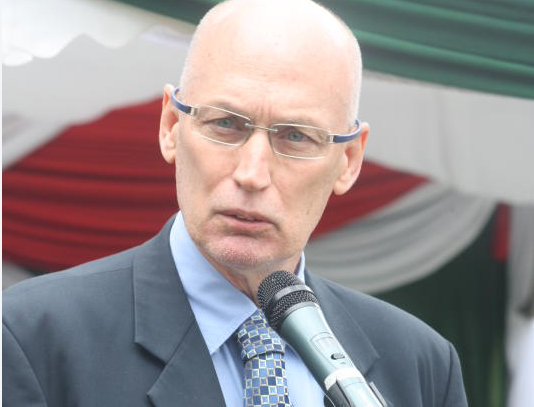×
The Standard e-Paper
Fearless, Trusted News

Kenya should invest in technology and innovation to solve water shortage which is threatening to explode into a humanitarian crisis.
According to Israel ambassador to Kenya, Noah Gal Gendler (pictured), the country has been losing about 60 per cent of water to leakages and illegal connections.